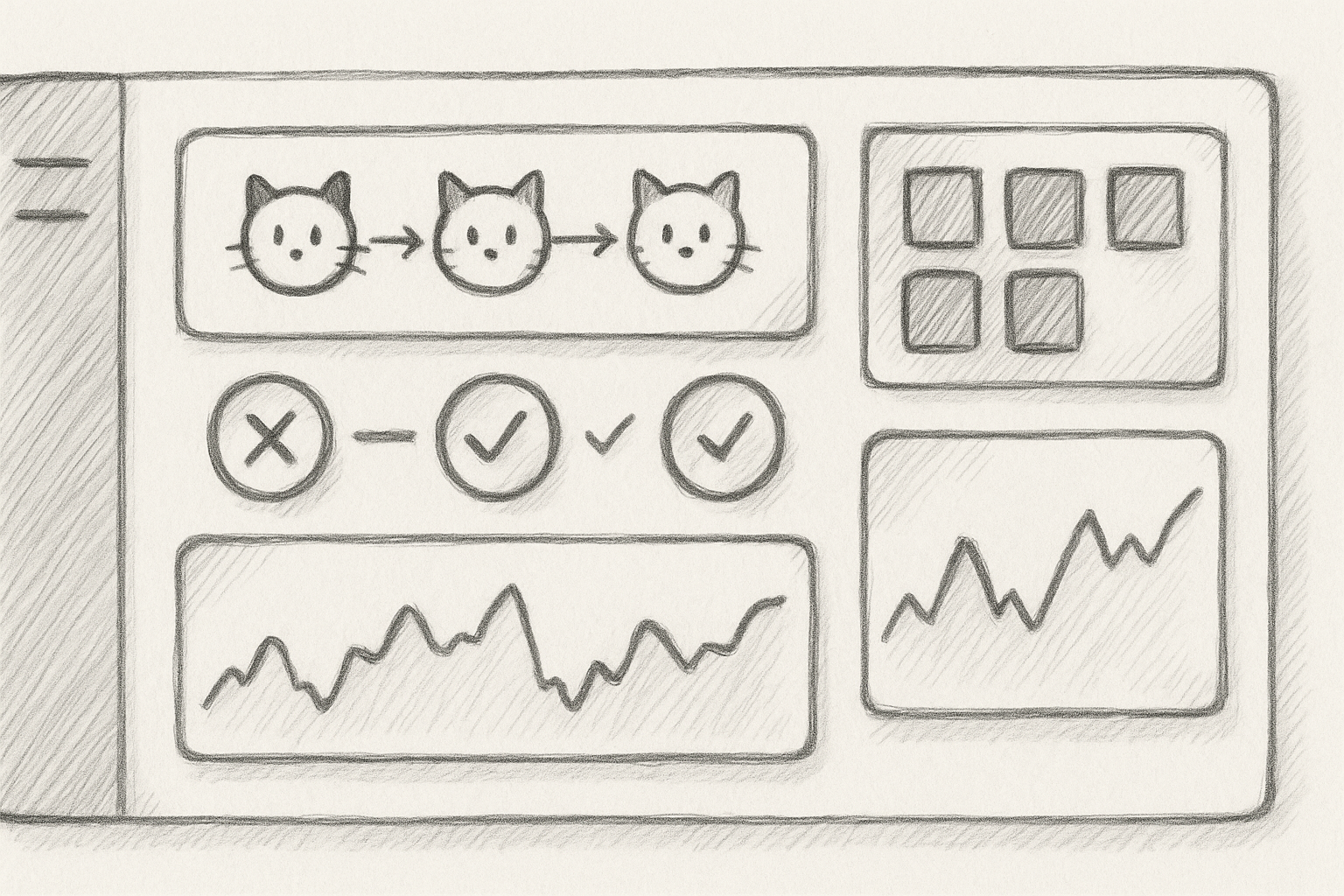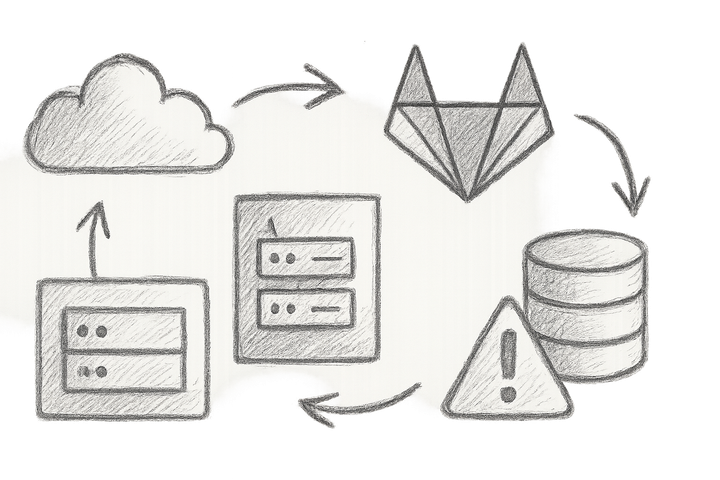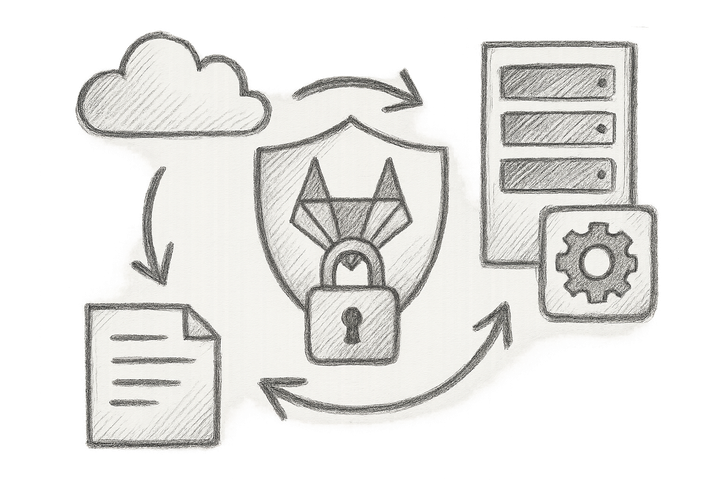GitHub Agent HQ — Centralised Orchestration of Multi-Vendor AI Coding Agents in Your DevOps Flow

Why Juggling AI Coding Assistants Feels Like Herding Cats in a Hurricane
Imagine managing a dozen AI coding assistants simultaneously, each barking orders in a language only they understand. You’re juggling OpenAI’s Codex, Anthropic’s Claude, Google’s Jules, and a motley crew more inscrutable than your last tech vendor meeting. Sound exhausting? Welcome to the fractured reality of modern AI orchestration in DevOps—where every new "helpful" AI bot might just be your next headache.
Now, what if you could transform that cacophony into a symphony? Enter GitHub Agent HQ, your soon-to-be indispensable mission control. Unveiled at Universe 2025 1, Agent HQ promises to tame the wild beast of multi-agent AI chaos—not with fairy dust, but with hard engineering principles and operational grit.
How does it turn AI chaos into coordinated brilliance? More importantly, what are the hidden pitfalls that no one dares to mention? Buckle up—I’ll guide you through battle-tested strategies, personal scars, and practical steps that turn AI bots from frenemies to faithful teammates.
The Problem Space: Why Managing Multiple AI Bots Is a Recipe for Disaster
Let’s get a stark reality check. Remember when flaky Jenkins plugins were about as crazy as integration got? Now, every AI agent behaves like a bespoke diva, each demanding a different API offering (REST, GraphQL, or who knows what next), brandishing output that ranges from genius flashes to utter gibberish, and flaunting governance models that would make GDPR officers weep into their compliance manuals.
Here’s the mess neatly summed up:
- Disparate APIs: No standardised input/output; some want REST, others mutate GraphQL endpoints, payloads differ wildly.
- No Unified Governance: Secrets leak like sieves with too many bots accessing prod credentials.
- Workflow Chaos: Randomly embedded AI actions in CI, code reviews, or migrations leads to brittle, fragile pipelines.
- Trust Deficit: AI fixes sometimes trip security gates or break policies—a fast track to developer mistrust.
- Manual Orchestration Hell: Coordinating multiple agents manually is like listening to three translators shouting simultaneously—confusing and error-prone.
Personal anecdote alert: One memorable Friday afternoon, a single rogue AI suggestion cascaded into build failures on every pipeline—cue panic, missed deadlines, and a long weekend of damage control. Another time, multiple bots vied to patch the same PR, turning the codebase into a partially completed jigsaw puzzle. If that doesn’t scream "wait, what?!" I don’t know what does.
Supply chain risks add a darker shade: Lessons from Docker Hub’s infamous "Black Monday" incident on 20 October 2025 underline how fragmented troubleshooting amplifies outages and morale crashes alike 2.
GitHub Agent HQ: Your AI Orchestra Conductor
GitHub Agent HQ stakes a bold claim: be the mission control atop this AI chaos, offering centralised governance and orchestration tailored for today’s polyglot AI ecosystem.
Supported Vendors – The A-Team Line-Up
From launch, Agent HQ supports these heavy hitters:
- OpenAI Codex
- Anthropic Claude
- Google’s Jules
- And a few more niche but eager contenders like xAI and Cognition’s Devin
The kicker: it’s extensible. Wanna onboard your own experimental agent? Piece of cake.
Core Architecture and Features
- Multi-Agent Governance: Role-based access control (RBAC), fine-grained permissions, and audit logging keep rogue bots in check. Think zero trust meets tightly guarded AI playground.
- Unified API Layer: One interface to replace the dozen barking at your CI pipeline.
- Parallel & Sequential Orchestration: Parallel runs spawn competing code suggestions; sequential chains let bots perform tag-team coding moves. Wrestling meets codebase maintenance.
- Deep GitHub Integration: Not a sidecar but a brain embedded into GitHub Actions, CodeQL scans, and migration workflows.
- Dashboard Mission Control: Real-time agent activity, usage stats, error logs, and manual overrides—you’re always in the pilot’s seat.

But the pièce de résistance is Plan Mode—a feature where Copilot sketches detailed, step-by-step blueprints before any code executes. Think of it as forcing your AI coder to draw a map before storming the castle. Without it, you risk the AI getting lost in the weeds and making changes that would have your security team banging their heads against the wall.
Getting Your Hands Dirty: Setting Up GitHub Agent HQ
Enough theory—here come the nuts and bolts.
What You Need Before Starting
- GitHub organisation admin rights. No silver spoons here.
- Subscription to GitHub Copilot Pro (Agent HQ exclusive).
- API keys for external AI vendors (OpenAI, Anthropic, etc.).
- Basic GitHub Actions YAML knowledge.
Step 1: Enable Agent HQ in Your Organisation
- Navigate to Agent HQ under GitHub Enterprise’s “AI integrations.”
- Securely stash API keys as secrets—least privilege is your mantra.
- Define agent permission scopes—Anthropic Claude gets read-only on dev branches? Done.
- Switch on audit logs; blind AI run amok? Not on your watch.
Step 2: Create Agent Profiles
Profiles bind API keys, rate limits, and workflows—decoupling credentials for security and easier revocation. Think of it as signing the bots up with their own library cards instead of handing them master keys.
Step 3: Sample GitHub Actions Workflow Snippet
name: AI Code Fix Suggestion
on:
pull_request:
types: [opened, synchronize]
jobs:
ai-fix:
runs-on: ubuntu-latest
steps:
- name: Checkout code
uses: actions/checkout@v3
- name: Run Agent HQ Orchestration
uses: github/agent-hq-action@v1
with:
agents: openai, anthropic
task: "Suggest code fixes for security vulnerabilities detected in this PR."
env:
AGENT_HQ_API_TOKEN: ${{ secrets.AGENT_HQ_API_TOKEN }}
- name: Commit AI fixes
if: steps.agent-hq.outcome == 'success'
run: |
git config --global user.name "Agent HQ Bot"
git config --global user.email "agent-hq-bot@example.com"
git add .
git commit -m "Apply AI-suggested code fixes" || echo "No changes to commit"
git push origin HEAD:${{ github.head_ref }}
Error Handling and Fallbacks You’d Better Use
Agent HQ’s retry logic smartly handles transient issues—API rate limits or flaky networks don’t get a free pass. Persistent failures switch to manual review mode, pinging the right folks via GitHub Issues or Slack.
Set thresholds in the dashboard to throttle AI interventions under error duress. This isn’t a mere convenience; it’s a shield against cascading pipeline meltdowns. Remember Azure’s colossal outage on 29 October 2025? A configuration error in Azure Front Door caused a global outage lasting hours, proving even cloud titans stumble without redundancy and robust fallback systems 3.
Real-World Wins: How Agent HQ Earns Its Keep
From my battlefield dispatches, Agent HQ shines brightest in these scenarios:
CI/CD Gains
Need to auto-generate unit tests or refactor aged spaghetti? Run agents in parallel to crowdsource top fixes, then filter for human review. Code velocity jumps; your weekends? Unscathed.
Boosting Security with CodeQL
Security isn’t optional. Integrate Agent HQ with CodeQL scans and watch AI suggest immediate fixes for vulnerabilities, slashing remediation time from days to hours. Picture your AI catching a sneaky SQL injection and patching it before the attackers even blink.
Migration Orchestration Magic
Legacy migrations agonise DevOps teams relentlessly. Agent HQ segments the process—one bot analyses dependencies, another writes migration scripts, a third validates success. No chicken-egg loops, just a smooth handoff.
Operational Reality Checks: What You Need to Know
Running Agent HQ at scale taught me this:
- High Availability: Retry policies and multi-agent backups prevent bottlenecks when an agent flounders.
- Security Best Practices: Zero trust isn’t marketing fluff—agents get only what they need. Secrets are encrypted treasure chests, not sticky notes on the monitor.
- Lessons from Hell: One outage turnaround was due to a misconfigured API key letting an agent write to prod branches. Immutable infrastructure and human-in-the-loop controls saved the day. Trust me, you want those fail-safes.
Opinion Corner: The Good, the Bad, and the AI
Let’s be brutally honest. Introducing a centralised orchestrator does mean a new single point of failure. If Agent HQ crashes, your entire multi-agent ecosystem limps or stalls. But here’s my strong take backed by scars and stories: The cognitive load it lifts, plus governance wins, vastly outweigh that risk.
I’ve witnessed teams drown in independent AI alert noise—the decentralised anarchists of automation. Agent HQ tames this chaos, becoming less “office anarchist” and more “reliable team lead.” Velocity? You bet. Just don’t hand over the keys to bots and interns without supervision—nuclear launch codes, anyone?
Peering Into the Crystal Ball: The Future of AI Coding Orchestration
Brace yourself. The future’s a wild blend:
- Emerging industry-wide AI agent interoperability standards promise cross-platform unified control beyond GitHub.
- Governance will grow compliance muscles, embedding explainability and risk scoring inside agent decisions.
- Multi-modal orchestration is already on the horizon: AI agents spanning code, infrastructure, and ops workflows for full-cycle automation.
- And who knows? Agent HQ might evolve into a platform-agnostic “AI DevOps Maestro," conducting entire delivery pipelines like a virtuoso.
Conclusion: How to Take Command and Measure Success
Agent HQ cuts through scattered AI complexity like a sharp blade through tangled cables. Step one? Start small:
- Augment one security scan pipeline with AI repair suggestions.
- Measure ROI—track defect remediation times and code review speed-ups.
- Expand to migration orchestration once you’ve mastered the basics.
Watch these key metrics:
- Automation ROI and time savings
- Faster code review cycles
- Slashed manual security patch workloads
Ignoring fragmented AI tooling? Costly mistake. To keep your production humming with AI bots doing the heavy lifting, centralised orchestration isn’t a luxury—it’s survival.
References
- Roth, Emma. "GitHub is launching a hub for multiple AI coding agents." The Verge, 28 Oct. 2025.
https://www.theverge.com/news/808032/github-ai-agent-hq-coding-openai-anthropic - "Docker Hub/Build Cloud’s Black Monday (Oct 20, 2025) — Supply Chain Lessons for DevOps Resilience." [Internal Post]
- "Microsoft Azure outage: Lessons from a global configuration error on October 29, 2025." Forbes, Oct 30, 2025.
https://www.forbes.com/sites/emilsayegh/2025/10/30/the-clouds-halloween-scare-lessons-from-the-azure-outage/
Written deep in the trenches, seasoned with scars and sprinkled with sly remarks, this guide dares to equip you with the survival kit needed to master AI orchestration in DevOps circa 2025. Strap in, centralise, and conquer.



